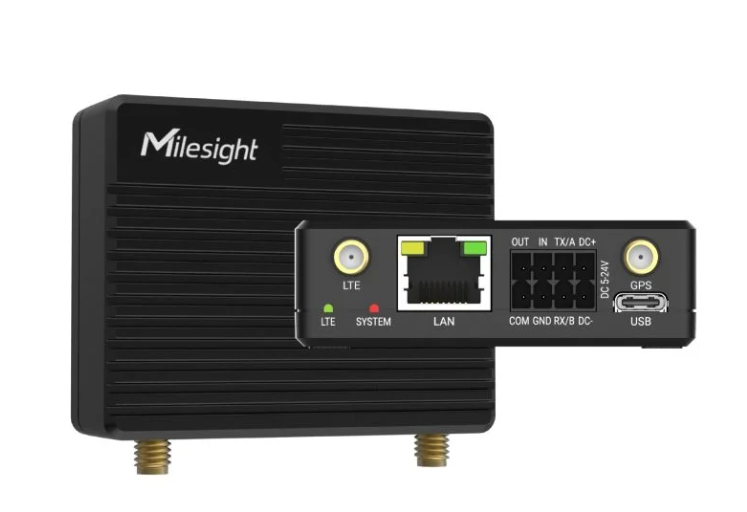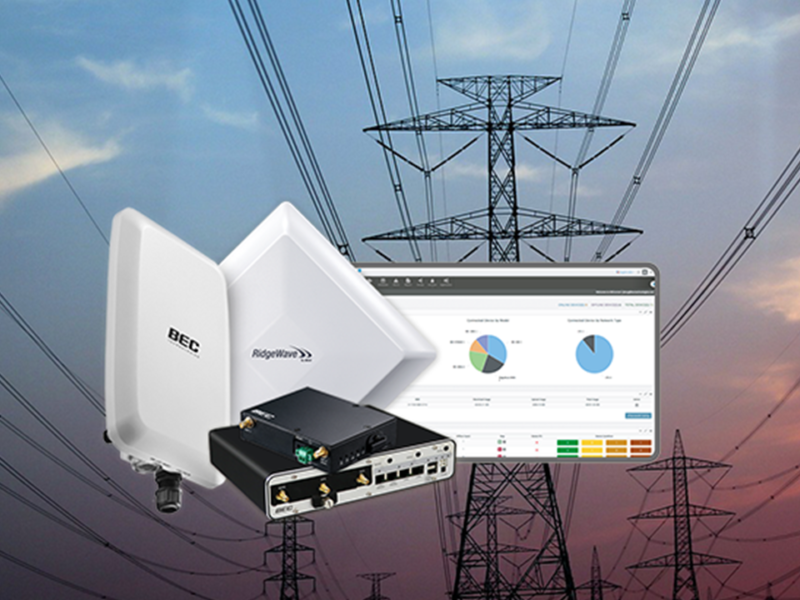4G routers are networking devices that provide internet connectivity through 4G cellular networks. These routers use the same technology that powers smartphones’ mobile data connections but are designed to offer internet access to multiple devices simultaneously, typically in a home, office, or other local area. They have a SIM card slot to insert a mobile data SIM card and create a local Wi-Fi network for devices to connect to. Industrial 4G routers are especially useful in areas with limited or no access to traditional broadband connections.
They can be used as a primary internet source or as a backup solution in case the primary connection fails. These routers provide faster data speeds compared to older 3G technology, making them suitable for activities such as streaming, online gaming, and remote work.
Applications of Industrial 4G Routers
Industrial 4G routers find applications in a wide spectrum of industries, owing to their versatile and robust design. Some notable applications include:
- Industrial Automation: These routers play a pivotal role in industrial automation by facilitating seamless communication between Programmable Logic Controllers (PLCs), Human-Machine Interfaces (HMIs), and other automation devices. Real-time data exchange ensures efficient process monitoring and control.
- Remote Monitoring and Control: In industries with distributed infrastructure, such as energy, oil and gas, and utilities, industrial 4G routers enable remote monitoring and control of critical equipment. This ensures timely interventions and minimizes downtime.
- Transportation and Fleet Management: Industrial 4G routers are used in the transportation sector for real-time tracking, route optimization, and communication with vehicle systems. They enhance safety, efficiency, and customer experience.
- Smart Agriculture: In precision agriculture, these routers enable data collection from sensors and automation of irrigation, fertilization, and pest control systems. This leads to optimized crop yields and resource management.
- Surveillance and Security: Industrial 4G router play a crucial role in security systems by providing remote access to surveillance cameras and enabling real-time video streaming for enhanced security and surveillance.
Features and Benefits of Industrial 4G Routers
- Versatile Connectivity: One of the standout features of industrial 4G routers is their ability to connect with diverse wired devices through DI/DO (Digital Input/Digital Output), RS232, and RS485 interfaces. This versatility allows for the seamless integration of various industrial equipment.
- Energy Efficiency: Industrial 4G routers are designed with power-saving capabilities, optimizing energy consumption during both idle and standby modes. This energy-saving option aligns with sustainable practices and reduces operational costs.
- NXP Industrial-Grade Processor: The incorporation of an NXP industrial-grade processor ensures high-performance computing for data processing and transmission. This robust processing power enables smooth handling of data-intensive applications.
- Rugged Enclosure with IP30 Protection: The rugged enclosure of these routers, combined with IP30 protection, shields them from harsh industrial environments, including dust, moisture, and temperature fluctuations. This durability ensures consistent operation even in challenging conditions.
- Mounting Flexibility: Industrial 4G routers offer the convenience of desk or wall mounting, allowing users to adapt their installation according to the specific requirements of their industrial setting.
Also read: The Power of Media Players for Digital Signage
Milesight IOT UR41 4G Mini Industrial Cellular Router
Introducing the UR41 4G Mini Industrial Cellular Router from Milesight IOT, available through Tekdis UK. This Low Power Mini Industrial Router boasts a compact size perfect for small embedded scenarios. With global 4G LTE CAT4/3G network support across multiple carrier networks, it ensures reliable and fast connectivity. Ideal for industrial applications, this router empowers efficient data exchange, all while maintaining a small footprint. Upgrade your networking with the UR41 and experience seamless connections tailored for industrial needs.

Related products: digital signage media player | Panel PCs
4G vs. 5G Routers: Understanding the Distinctions
While both 4G and 5G routers cater to the need for reliable and high-speed connectivity, they possess distinct features that set them apart:
4G Routers:
- Maturity: 4G technology has been established for several years, making 4G routers widely available and compatible with existing infrastructure.
- Coverage: 4G networks offer comprehensive coverage in urban and suburban areas, making them suitable for industries located in developed regions.
- Speed: While 4G provides substantial data speeds, they are generally lower than the peak speeds achievable with 5G.
5G Routers:
- Higher Speeds: The hallmark of 5G technology is its significantly higher data speeds, enabling real-time data exchange and supporting emerging applications such as augmented reality and IoT.
- Low Latency: 5G networks offer ultra-low latency, making them ideal for applications that require immediate responses, such as industrial robotics and remote surgery.
- Capacity: 5G networks are designed to handle a massive number of devices simultaneously, catering to the demands of the IoT ecosystem.
Also read: Exploring the Benefits of Industrial Panel PCs for Businesses
Conclusion
Industrial 4G routers are the driving force behind seamless connectivity in the modern industrial landscape. Their ability to connect diverse wired devices, coupled with power-saving features, NXP industrial-grade processors, and rugged enclosures, positions them as indispensable components in various industries. Whether enhancing industrial automation, enabling remote monitoring, optimizing transportation, or bolstering security, these routers play a pivotal role in shaping the future of Industry 4.0.



